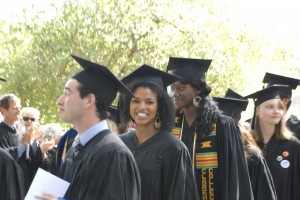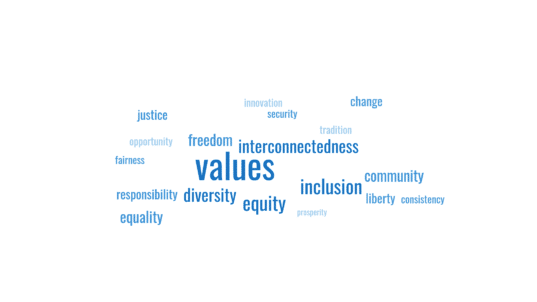Introduction
First generation college students— or those students whose parents did not complete a four-year degree– face unique challenges. First-generation students include traditional-aged students, active-duty members of the military and veterans studying with G.I. benefits, as well as adult learners completing a degree while working full-time and raising a family. Most first-generation college students are immensely talented and highly motivated to succeed in college, but there are economic and social factors that can make it difficult for them to get into a four-year college or university to complete an undergraduate degree.
What do you think are some of the concerns facing first-generation students, their parents, and the faculty and administrators who serve them? What are some different ways of addressing these concerns? I have been drafting a discussion guide that is intended to help citizens to explore these concerns from different points of view. It presents five policy approaches, each of which offers a different way to address the concerns people might have about how to best encourage the success of first-generation college students. We invite you and a small group of friends, colleagues, classmates, or family members are encouraged to use this guide explore a range of concerns surrounding this issue and some different policy possibilities that respond to these concerns. We encourage you to also consider perspectives and policy approaches beyond the ones presented here. If you’d like to help test this guide, please contact the project manager and author, Suzanne Lea, at [email protected].
The possibilities explored in this discussion guide provide a means to explore the accessibility of a four-year college degree. This guide is for anyone who is interested in thinking about the future of higher education in terms of the changing demographics of college attendees. It is also meant for communities that have few college graduates, as a way for their citizens and political representatives to explore together the value of college education for their community and how to make it more accessible—if it is indeed something of value. This guide may also be useful to college and university faculty and administrators as they consider the challenges first-generation students face and as they innovate to best serve this unique population of students. Finally, it is especially intended for those who would be first in their families to take this path—as a means for you and your friends, family, advisors, teachers, and other sources of social support to consider some of the barriers you may face and how to they might be overcome.
A Brief Description of the Possibilities Explored in this Guide
(A) Pushing the First Domino: Connect young people who are the first in their families to attend college with mentors that both “know the ropes” and can relate well to the student so as to encourage them to start college in a way that will increase their confidence to go on to complete a degree or to return to college after a negative first experience. A critical part of this mentorship would be to broaden these young people’s visions of what they might do career-wise.
(B) A Free or Low-Cost Education for All: Remove financial limitations as a barrier for first-generation students by providing tax-payer-supported, tuition-free public colleges and universities as part of a public K-16 system.
(C) Finding the Right Fit: Create an accrediting system to support first-generation students in choosing a college that will truly be an all-around great fit for them so that they can most efficiently and cost-effectively complete their studies with little or no need for costly transfers between schools.
(D) Renewing the Village: This possibility proposes that we promote investment in higher education within all regions of the country, and find more ways to make it possible for first-generation student to go off to school and then return to live and work in the communities in which they grew up. How might we think of first-generation students as potential investments for communities that deeply need renewal?
(E) It’s a Family Affair: It can be daunting for parents to send their child off to a place with which they are not at all familiar. Many parents realize it is important to give their child the opportunity to pursue a higher education, but it would be very helpful if more schools would directly engage parents of first-generation students. Many parents want to help but simply do not know how to best support their children. What supports are most useful? Also, once one child makes this transition, it is much more likely that younger siblings will also attend college and complete a degree.
If you would like to help us test this report, PLEASE get in touch. We’d love to have you participate in an online discussion or to test it in your classroom or community.




